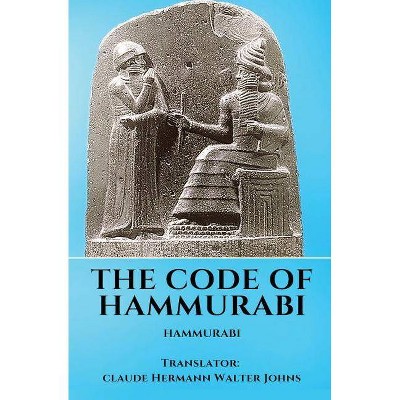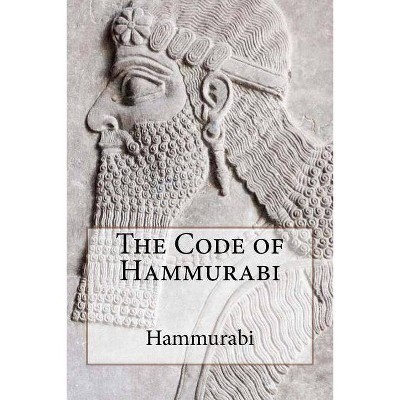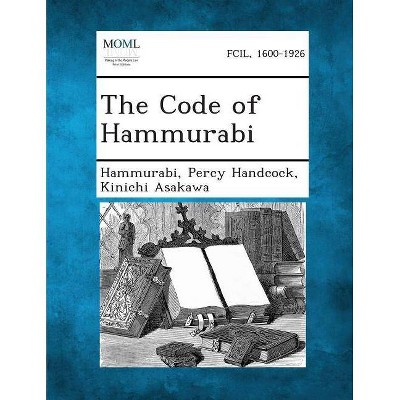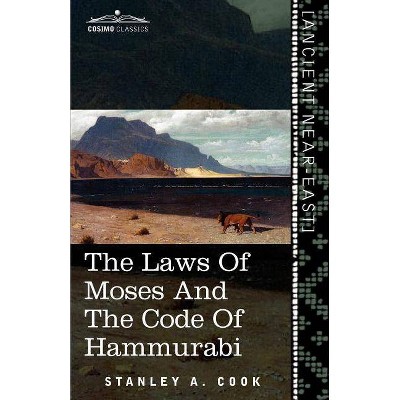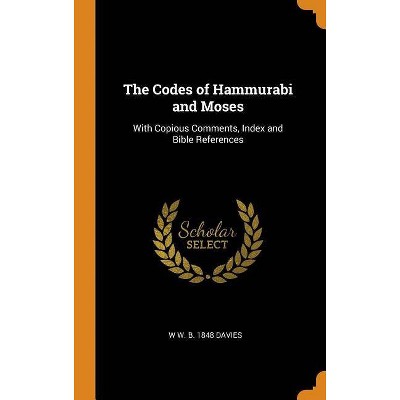The Code of Hammurabi - (Hardcover)
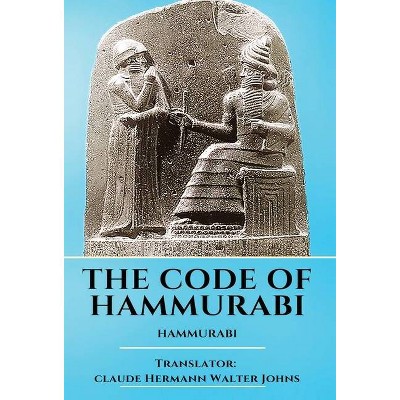
Similar Products
Products of same category from the store
AllProduct info
<p/><br></br><p><b> About the Book </b></p></br></br>The Code of Hammurabi is a well-preserved Babylonian law code of ancient Mesopotamia, dating back to about 1754 BC. It is one of the oldest deciphered writings of significant length in the world. The sixth Babylonian king, Hammurabi, enacted the code, and partial copies exist on a man-sized stone stele and various clay tablets.<p/><br></br><p><b> Book Synopsis </b></p></br></br><p>The Code of Hammurabi is a well-preserved Babylonian law code of ancient Mesopotamia, dating back to about 1754 BC. It is one of the oldest deciphered writings of significant length in the world. The sixth Babylonian king, Hammurabi, enacted the code, and partial copies exist on a man-sized stone stele and various clay tablets.</p><p>The Code consists of 282 laws, with scaled punishments, adjusting "an eye for an eye, a tooth for a tooth" (lex talionis) as graded depending on social status, of slave versus free man. Nearly one-half of the Code deals with matters of contract, establishing, for example, the wages to be paid to an ox driver or a surgeon. Other provisions set the terms of a transaction, establishing the liability of a builder for a house that collapses, for example, or property that is damaged while left in the care of another. A third of the code addresses issues concerning household and family relationships such as inheritance, divorce, paternity, and sexual behavior. Only one provision appears to impose obligations on an official; this provision establishes that a judge who reaches an incorrect decision is to be fined and removed from the bench permanently. A few provisions address issues related to military service.</p><p>Hammurabi ruled for nearly 42 years, c. 1792 to 1750 BC according to the Middle chronology. In the preface to the law, he states, "Anu and Bel called by name me, Hammurabi, the exalted prince, who feared Marduk, the patron god of Babylon (The Human Record, Andrea & Overfield 2005), to bring about the rule in the land." On the stone slab there are 44 columns and 28 paragraphs that contained 282 laws. The laws follow along the rules of 'an eye for an eye'.</p><p/><br></br><p><b> Review Quotes </b></p></br></br><br><p><strong>Procedure in case of the discovery of lost property</strong></p><p>§ 12. If the seller has in the meantime died, the buyer shall take from his estate fivefold the value sued for.</p><p><strong>Judgment by default</strong></p><p>§ 13. If a man has not his witnesses at hand, the judge shall set him a fixed time not exceeding six months, and if within six months he has not produced his witnesses, the man has lied; he shall bear the penalty of the suit.</p><p><strong>Kidnapping</strong></p><p>§ 14. If a man has stolen a child, he shall be put to death.</p><p><strong>Abduction of slave</strong></p><p>§ 15. If a man has induced either a male or female slave from the house of a patrician, or plebeian, to leave the city, he shall be put to death.</p><p><em><strong> ― Hammurabi, The Code of Hammurabi</strong></em></p><br>
Price History
Price Archive shows prices from various stores, lets you see history and find the cheapest. There is no actual sale on the website. For all support, inquiry and suggestion messages communication@pricearchive.us
